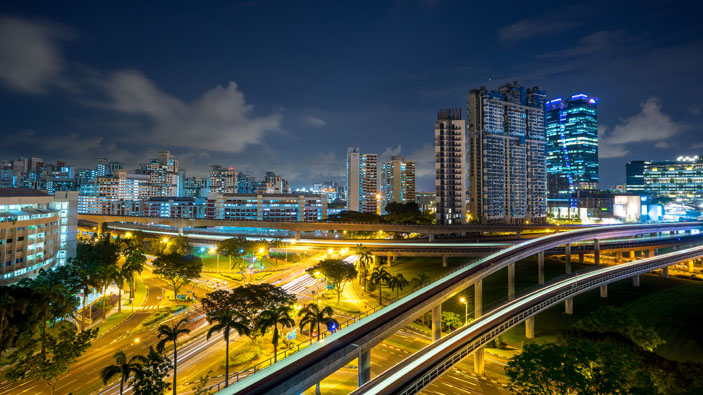AFTER Singapore’s first Cabinet was installed in Singapore in 1959, Minister of Finance Goh Keng Swee quickly sought to convert the swampy marshes of Jurong into industrial use.
It was an ambitious but risky project, and some observers thought it would be a waste of public funds. It was called Goh’s folly in some quarters. Dr Goh’s folly turned out to be hugely successful.

Three decades on and Jurong had shed its frontier town image.
In the early years, residents often complained that the place smelled of mud. However, by the early 1980s, it was an industrial urban centre with more than 100,000 people and the dynamics had changed.
Ho Kah Leong, MP for Jurong at the time, said: “Now problems are more personal, they want bigger flats not outside Jurong but inside Jurong Town. This is a reflection that the residents have appreciated the changes that occurred over the years and have found it attractive to continue to stay (there).”
The early experiences of Jurong demonstrated two things.
First, Singaporeans have always complained. Face it, it’s in the DNA of Singapore society.
Second, nation-building requires leaders to stick their neck out for what they believe in. Dr Goh took a political risk that paid off in the end. Building Jurong from scratch turned out to be a populist move founded on the fledgling island’s plan to grow an industrial base.
Building Around Changes
More than 50 years on, such straightforward nation-building opportunities are not present for the government any more. Arguably, social media has emerged as the driver of nation-building everywhere and this is not something that would sit comfortably with any government.
The impending appointment of a 10-member Select Committee to look into the problem of “deliberate online falsehoods” can be seen as an effort by the government to take back control of the process of nation-building by putting restrictions on social media.
A press release released earlier in the month by the Ministry of Law also notes that the Select Committee has to recommend “how Singapore should respond”.
By saying “how Singapore should respond” instead of “how the Singapore government should respond”, the Ministry of Law is injecting a populist layer into the appointment of the committee. This is a clever move as it could make it easier to implement new restrictions on websites that don’t adhere to a certain set of criteria.
You Might Also Like To Read:
Goldbell — Ringing In The Future
Unpopular Move
However, it is clear that any restrictions will not be popular. Social media has made people experts in everything and they are not willing to let that go so easily, or see restrictions in the online space.
The manager of Arsenal Football Club, Arsene Wenger, recently made some astute comments describing how the world today is driven by social media and the internet. It should be noted that Wenger is not your typical English football club manager. He has an Economics degree and speaks several languages including some Japanese.

Talking about the persistent criticism about how he manages the club in recent years, he said: “We live in a society that is more demanding, that is more opinionated. The overall problem in Europe is that the respect for basic things has been lost, or is less strong that it was 20 years ago.
“As well you have positive things: People are better informed, people are better educated. People have more knowledge of the game. You have to think of balance.”
As an example of the power of the internet to drive people’s thinking, Wenger described how the relationship between doctors and patients has changed. “There is more suspicion now…you go to a doctor and he is more questioned than he was 20 years ago.
“20 years ago, you go to a doctor, he says ‘you have that’, you say ‘Ok, I will go home and do that.’ Today, when you go to see the doctor, you have read before on the internet. And he has to convince you that you have not necessarily what you think you have. So that basically means that you are questioned more. In every single job, people are questioned more,” Wenger said.
For More Commentaries visit http://www.storm.sg/views/
Era Of Criticism
Wenger is simply explaining how things are today, and he is not asking for restrictions. He is too much of a worldly-wise figure for that. Which brings us back to Singapore.
Will the impending Select Committee to restrict websites be a folly? It is likely that criticism will come thicker and faster than Dr Goh ever experienced if the government imposes restrictions.
But this begs another question. Is social media a swampy marsh that needs to be cleaned up and put to better use?
It took two to three decades for Jurong to become accepted. Perhaps social media needs that duration too, to gain widespread credibility. Effectively, it has only been around for a bit more than one decade though its immediacy gives the illusion that it has been around for a long time. Perhaps the Singapore government is making the right moves on this relatively new frontier. We’ll know for sure in a decade or so.
Thus It Was Unboxed by One-Five-Four Analytics presents alternative angles to current events. Reach us at 154analytics@gmail.com
Images: / Shutterstock.com























